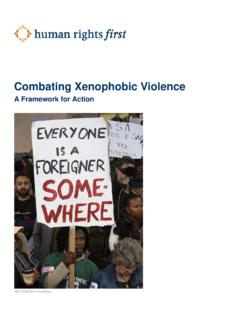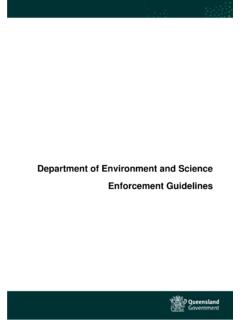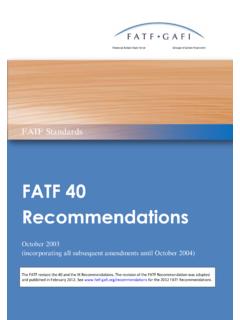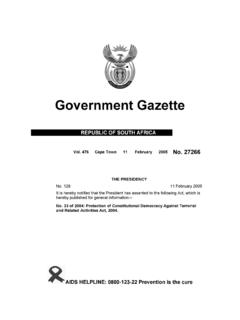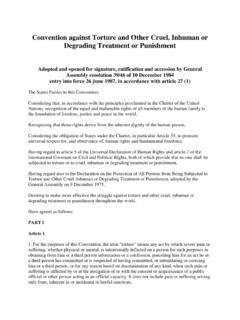Transcription of LGBT Issues in Jamaica - Human Rights First
1 FACT SHEET Human Rights First LGBT Issues in Jamaica You re more eager for progress that comes not by holding down any segment of society, but by holding up the Rights of every Human being, regardless of what we look like, or how we pray, or who we love. You care less about the world as it has been, and more about the world as it should be and can be. President Barack Obama Town Hall with Young Leaders of the Americas Kingston, Jamaica The criminalization of homosexuality in Jamaica dates back to the 1864 offences Against the Person Act, which calls for a punishment of up to 10 years of imprisonment with hard labor for those convicted of the abominable crime of buggery. Members of the Jamaican LGBT community are denied access to basic Rights and services, resulting in alarming rates of homelessness and HIV. Despite a history of persecution and marginalization, Jamaican LGBT activists are rising to the challenge of combatting homophobia, discrimination, and violence.
2 The offences Against the Person Act of 1864 Homosexual acts are illegal in Jamaica , levying sentences of up to 10 years of imprisonment with hard labor for those convicted under Article 76 of the offences Against the Person Act, also known as the buggery statute. The law is predominantly enforced against homosexual men. Article 76 is only one of a number of articles that codify homophobia into law. While arrest under these laws is not the primary concern, they are used to justify other Rights violations, legitimizing discrimination and violence toward LGBT people based on sexual orientation and/or gender identity. n Article 76: "Whosoever shall be convicted of the abominable crime of buggery [anal intercourse] committed either with mankind or with any animal, shall be liable to be imprisoned and kept to hard labour for a term not exceeding ten years.
3 " n Article 77: Concerning attempted buggery, "Whosoever shall attempt to commit the said abominable be guilty of a misdemeanor. If convicted, the sentence is a maximum seven-year prison term, with or without hard labor. n Article 79: Concerning outrages on decency, "Any male person who, in public or private, commits, or is a party to the commission act of gross indecency with another male person, shall be guilty of a misdemeanor. If convicted, the penalty is a maximum two-year prison term, with or without hard labor. In 2013, an LGBT Jamaican filed a case against the law, but he later withdrew the case due to threats against his safety and that of his family. In November 2015, gay Jamaican activist and lawyer Maurice Tomlinson filed a new constitutional challenge against the law. Charter of Fundamental Rights and Freedoms In 2011, Jamaica s Parliament approved the Charter of Fundamental Rights and Freedoms.
4 While the charter outlines protections from discrimination, sexual orientation and gender identity are not included in the list of protected classes. Activists in Jamaica urged parliament to include broad nondiscrimination language to ensure protection against discrimination based on sexual orientation, disability, and health status. However, efforts were unsuccessful and language against discrimination based on sexual orientation was deliberately excluded from the charter. FACT SHEET *All data compiled by Jamaican Forum for Lesbians, All-Sexuals, and Gays (J-FLAG), 2012 Human Rights First **Available at: Bias-Motivated Violence and Discrimination Between 2009 and 2012, the Jamaican Forum for Lesbians, All-Sexuals, and Gays (J-FLAG) documented 231 reports of discrimination and violence based on gender identity and/or sexual orientation.
5 Discrimination in access to housing, employment, and healthcare is part of daily life for many LGBT Jamaicans. In 2013, teenager Dwayne Jones was brutally killed by a mob after attending a party dressed in feminine attire. He was beaten, stabbed, shot, and run over by a car. After the killing, his family would not claim his body. Jones had dropped out of school at age 14 after he was relentlessly teased for being feminine. The widespread violence and discrimination has forced segments of the LGBT community literally underground. Shunned by their families, some LGBT teenagers have taken to sewers to avoid attacks. Public Opinion on LGBT People According to 2012 data*: n Eighty-eight percent of respondents believe that male homosexuality is immoral and nearly 84 percent believe that female homosexuality is immoral. n More than 75 percent of respondents are against repealing the buggery law and 65 percent oppose amending the Charter of Fundamental Rights and Freedoms to protect the Rights of members of the LGBT community.
6 Opportunities for Change n Jamaican Minister of Justice Mark Golding responded to Dwayne Jones murder by stating, all well-thinking Jamaicans must embrace the principle of respect for the basic Human Rights of all persons which requires tolerance towards minority groups and non-violence in our dealings with those who manifest a lifestyle that differs from the majority of us. n Thirty-seven percent of Jamaicans believe that leadership is not doing enough to protect the LGBT community from violence and discrimination. n President Obama traveled to Jamaica in April 2015 and recognized the important work of LGBT activist Angeline Jackson in a speech in front of 350 Caribbean youth leaders, underscoring the important work of Jamaican civil society to combat homophobia in the country. Influence in Jamaica Jamaica has long-standing diplomatic, cultural, and commercial relationships with the United States.
7 It is the third-largest trading partner in the Caribbean, exporting $ million to the and importing almost $2 billion of goods from the in 2013. Approximately one million American tourists visit Jamaica every year and Jamaican-Americans send billions annually in remittances to the island. Recommendations for Action n Secretary Kerry and other high-level State Department staff should convene a Human Rights dialogue with Caribbean heads of state to address Human Rights concerns in the region, particularly the situation of LGBT people in Jamaica and other Caribbean countries. n The Special Envoy for the Human Rights of LGBTI Persons should lead an inter-agency dialogue to develop a strategic plan for future engagement in advancing the Human Rights of LGBT people in Jamaica . n The Bureau of International Narcotics and Law Enforcement Affairs (INL) should incorporate diversity and sensitization to the Rights of LGBT people in all bilateral trainings of the Jamaican police force and members of the judicial system.
8 N The Global Equality Fund and USAID should continue to support organizations working on behalf of the LGBT population, including smaller organizations and groups that cater specifically to the needs of lesbians, bisexual women, and transgender people. For more information, see Human Rights First s report: The World as it Should Be: Advancing the Human Rights of LGBT People in Jamaica . **
